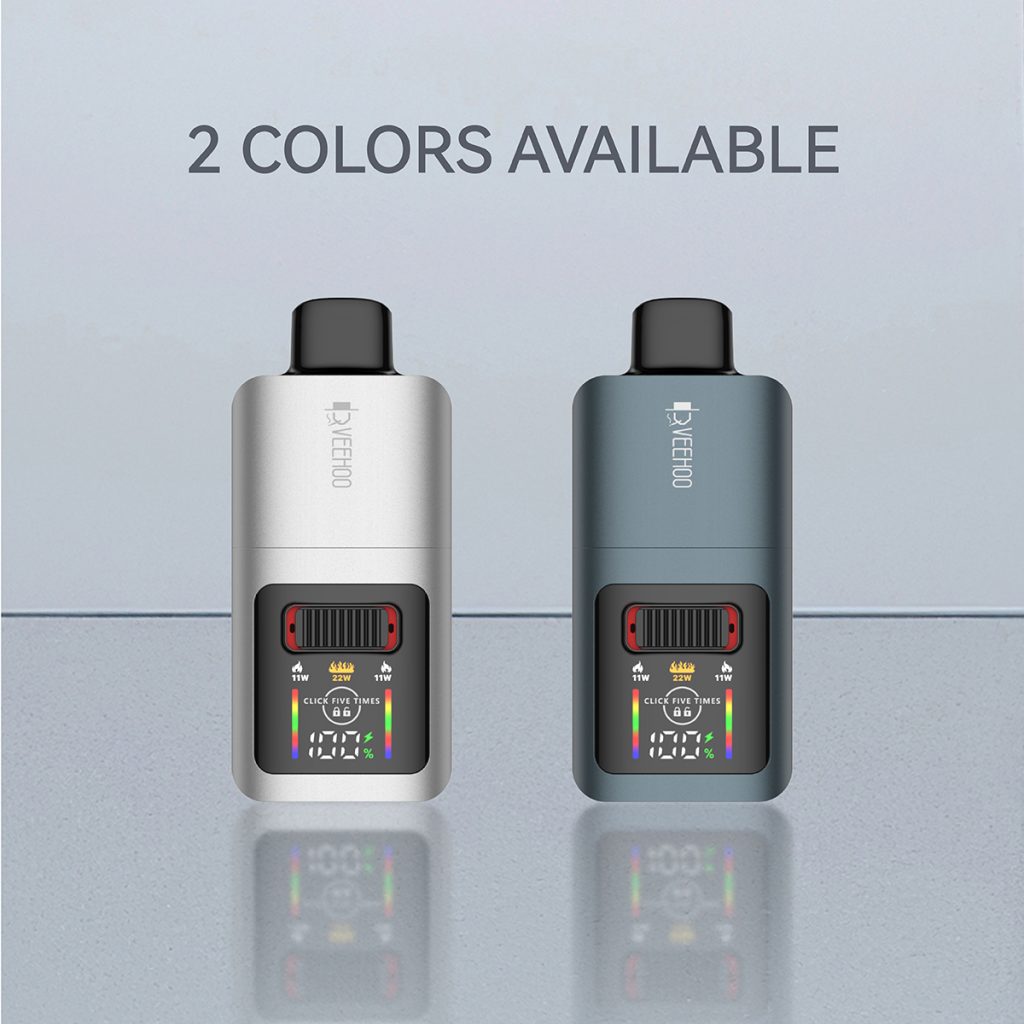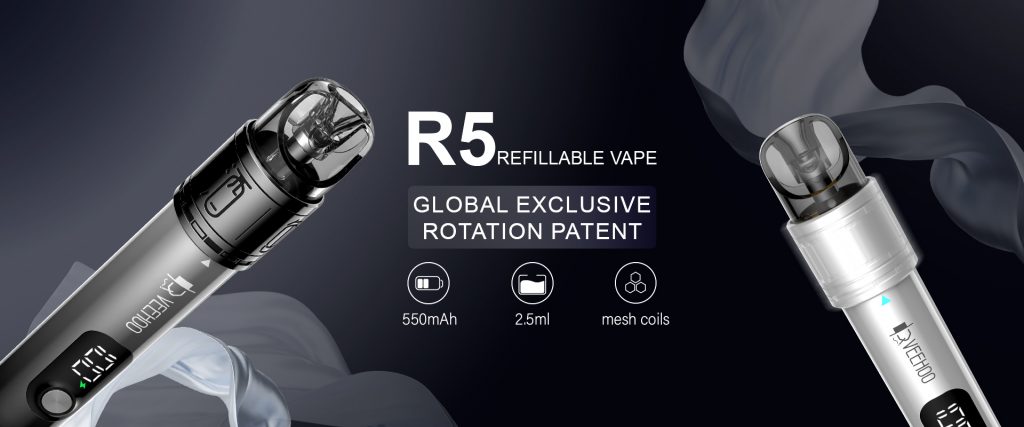The UK government is about to implement a ban on disposable e-cigarettes on June 1. While the news is still undecided, the market has set off a hoarding craze, with consumers and retailers hoarding disposable atomizers that are about to be discontinued. The sales of popular flavors have soared by 50% to double in just a few weeks. This panic buying not only reflects smokers’ dependence on alternative products, but also reflects the gray area and regulatory difficulties before the implementation of the policy. At the same time, industry experts and brand representatives pointed out that adult smokers may take this opportunity to switch to reusable devices, and the long-term assessment of the market structure and environmental impact still needs to be tested after the policy is implemented. In this context, VEEHOO e-cigarettes, with its characteristics of “scientific control of quantity and responsible sales”, may show competitive advantages in the adult smoking cessation assistance market segment.
The British government announced that for the two major considerations of protecting the health of young people and reducing the accumulation of waste caused by disposable e-cigarettes to the environment, it will ban the sale of all disposable e-cigarette devices and their pre-loaded cartridges from June 1, 2025. This policy was first proposed by the Conservative government in January 2024, and then continued and refined by the Labour Party. It aims to curb the rising rate of youth use by stripping off the sweet flavors and fancy packaging that are very attractive to minors, while reducing the burden of electronic waste on the environment due to the difficulty of recycling batteries and plastic casings. The policy clearly stipulates that only reusable devices that can be recharged and refilled with e-liquid and repacked e-liquid are still legal for sale, truly achieving a “one-size-fits-all” ban on disposable atomizers, rather than completely banning the entire e-cigarette market.

In the weeks before the ban officially came into effect, major online and offline retail platforms reported that consumers’ purchases of disposable atomizers showed a sharp increase. Several industry surveys pointed out that the sales of the most popular fruity and mint-flavored disposable devices increased by 50% to 100%, and some retailers even ran out of stock. Retailers generally believe that this kind of hoarding behavior is mainly due to adult nicotine users who are worried that the price or use experience of alternative products is not as good as disposable devices, and choose to buy in large quantities before the ban deadline to prepare for subsequent needs.
At the same time, regulators are also facing the practical dilemma of a shortage of law enforcement resources. Since 2024, Trading Standards has been unable to effectively deter the sale of illegal disposable devices due to staff shortages and decentralized law enforcement powers. The stockpiling trend may further give rise to the risk of underground gray channel transactions. Industry insiders are concerned that in the early stages of the ban, the circulation of illegal smuggling and unregistered products may become more active, bringing dual challenges to supervision and public health.
Despite the surge in sales of disposable devices, the demand for reusable devices is also rising simultaneously. The latest market data shows that more than one-third of users aged 16 to 24 have said that they will switch to reusable atomizers that are rechargeable and refillable with e-liquid after the ban. This migration to sustainable products is not only a direct response to the ban on disposable devices, but also in line with the consumer psychology of cost-saving and environmental protection trends. In order to help users make a smooth transition, some specialty stores have also launched reusable kits, discount exchange activities and e-liquid bundle discounts, which further stimulated the sales of new devices.

In the stockpiling craze, fruity and mint-flavored disposable devices are particularly popular. Industry reports point out that fruit flavors such as strawberry and blueberry have a wide audience, while mint and cold tastes have long maintained high popularity due to the refreshing experience during use. In the past four weeks, the sales growth rate of some fruit-flavored disposable devices has more than doubled, and the growth rate of mint-flavored devices is generally more than 50%. Sales data also show that limited edition or co-branded styles have intensified consumers’ desire to buy due to their scarcity and collection attributes. E-commerce platform data show that the search volume of related keywords has soared by 60% month-on-month, further proving the high concentration and short-term impact of the stockpiling tide.
Faced with the one-time ban policy, VEEHOO e-cigarettes are expected to occupy a place in the market adjustment period with their advantages in the field of smoking cessation assistance and sustainable use. First of all, the high-performance mesh coil design launched by VEEHOO ensures uniform heating and smoke purity, which not only meets the taste requirements of adult users, but also reduces the risk of overheating and oil leakage. Secondly, the brand has launched a multi-level nicotine content optional cartridge formula for adult smoking cessation scenarios, from zero nicotine to medium and low concentration gradients, to help smokers of different levels gradually reduce their dependence.
More importantly, VEEHOO fully implements the dual mechanism of “adult real-name authentication + anti-counterfeiting traceability” in sales channels. Each cartridge package is printed with a unique laser anti-counterfeiting code and a scannable production batch QR code. Consumers can scan the code to verify the authenticity and obtain product ingredients, instructions for use and recycling guidelines, so as to achieve full traceability from production to consumption and reduce the risk of illegal products and minors purchasing by mistake. In addition, VEEHOO has set up recycling bins and old machine repurchase projects in some stores and e-commerce platforms, encouraging users to return old equipment and get points or discounts for the next purchase, actively responding to environmental protection policies while improving brand loyalty.

This ban on disposable e-cigarettes and the stockpiling wave it triggered are not only a collision between public health policies and market dynamics, but will also have a far-reaching impact on the business model and regulatory framework of the e-cigarette industry. In the short term, stockpiling may send a signal of demand shift, prompting companies to accelerate the upgrading of product lines towards reusable and sustainable development. In the long run, the policy effect will depend on the intensity of law enforcement, the speed of popularization of alternative products, and the lasting change in consumer behavior.
For regulatory authorities, strengthening cross-departmental collaboration, making up for the human and technical shortcomings of Trading Standards, and cooperating with industry associations will be the key to ensuring the implementation of the ban and truly protecting young people and the environment. Companies need to follow policy guidance, improve product quality and compliance standards, and actively participate in recycling and popular science education in order to be invincible in future market competition.
In summary, although the UK’s ban on disposable e-cigarettes has brought short-term stockpiling and market fluctuations, it has also provided an opportunity for industry innovation and public health governance. If consumers, companies and governments can form a benign interaction within the framework of the new regulations, it will help protect young people and the environment while ensuring the healthy choices of adult smokers and the sustainable development of the industry.
Tags: disposable e-cigarette ban, ceramic atomizer core, flavored e-cigarettes, veehoo vape